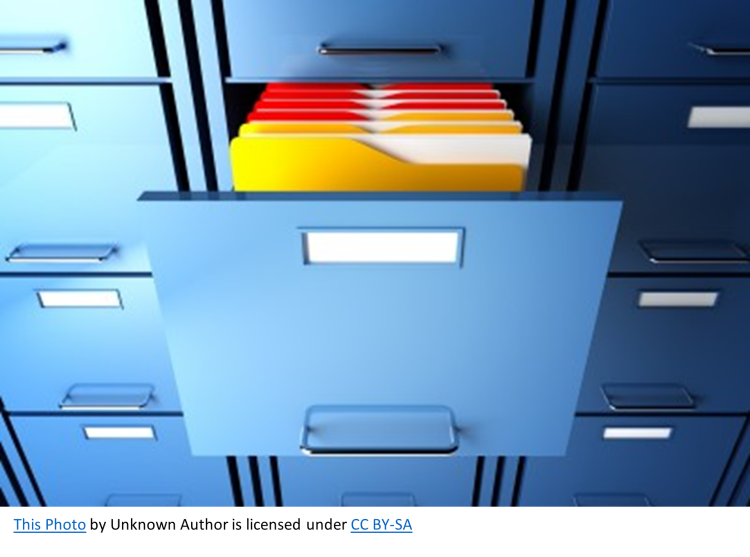Ros Malone is a Counsellor for The Australian Society of Archivists.

It is important for schools in Australia not to misunderstand the central findings and recommendations of the Commonwealth of Australia’s Royal Commission into Institutional Responses to Child Sexual Abuse, handed down in December 2017.
For school archivists and recordkeepers, the key to understanding is in the title of the enquiry.
Because for many schools across Australia, it was revealed that it was their response to allegations of, and enquiries about, child sexual abuse that was their greatest failing.
It is now fairly well understood by schools and school-related institutions that one of the worst things that can be done to an abuse survivor is to deny them their record. It doesn’t matter whether this denial occurs because a record has not been created, has been lost, has been deliberately withheld, or has been deliberately destroyed. Schools have a moral obligation – an obligation that rises well above compliance – to keep a record of the life of a child in their care, and to keep it for at least the lifetime of that child.
Today, only a few years after the findings of the Royal Commission, schools are embracing a variety of digital platforms to create, receive, and manage their records.
What does this mean for our legal and moral obligation to keep long-term, complete, accurate, and most importantly accessible records for those in our care?
Custody and Management
Third-party platform providers are offering a number of attractive digital products to schools today. But when schools subscribe to and use these platforms, are they outsourcing their responsibility with their recordkeeping?
The truth is that third-party platform providers offering solutions for school records management do not have the same obligations as the schools they woo as clients. School records held and managed by such platforms are less likely to be maintained in a suitable digital format to enable Permanent Retention, a not uncommon Disposal Action for school records in the wake of the Royal Commission.
The confirmed legal reality for any school is that their records are their responsibility. In terms of long-term digital preservation this means some simple actions that will make all the difference.
Digital preservation for school records held on third-party platforms begins with maintaining some deliberate custody of information like attendance and medical records. Because school archivists are the retention managers for their organisations, it has been a natural duty to encourage schools to create summary data from their third-party platforms – for example in the form of reports downloaded and converted into PDF/A format, in structures which capture the full context of the record.
By adopting this strategy a school is empowered to hold and manage their own digital record on a local server or cloud service, as well as to make specific, well-managed, migration and preservation decisions over long periods of time, well outside the potential corporate lifetime of any commercial digital solution.
Keeping is not Preserving
Preservation for Permanent Retention digital school records is best managed by schools. Lost or misplaced records have been a significant issue for former students and authorities making enquiries, and digital information is very easily lost or misplaced. It is not enough to keep digital school records without fully implemented digital strategy, framework, and policy.
Strategic digital preservation actions which schools must also consider include:
-
Systematic selection of digital material
-
Metadata and control documentation to support long-term retention and retrieval
-
Continuous management of technological change
-
Ongoing institutional support for digital records preservation
Access is everything

The lesson for schools in Australia in the wake of the Royal Commission is that we are the guardians of the record of our students’ lives while they are attending school.
Past recordkeeping problems we cannot deny include: incomplete and inaccurate records, improper maintenance, lost or misplaced records, destroyed records, and records being withheld or access refused. Although there have been many reasons over time for not being able to provide a record of a child’s life at school, lost or misplaced records, or records not created, have been common themes. Inadequately preserved digital records – lost to format obsolescence, haphazard migration to new systems, a lack of creation and control metadata, or other forms of poor management over time – will repeat this theme into the future.The lesson for schools in Australia in the wake of the Royal Commission is that we are the guardians of the record of our students’ lives while they are attending school.
All of the recordkeeping problems above have contributed in the past to unnecessary trauma for survivors of institutional abuse. All of the above add up to a present need to proactively ensure future access to what is now more often than not a digital record.
Archivists, as Retention Management specialists, are advocating for better long-term preservation of digital school information in small, but significant, ways.
Commonwealth of Australia. 2017. Volume 8, Recordkeeping and information sharing. Retrieved from https://www.childabuseroyalcommission.gov.au/recordkeeping-and-information-sharing
UNESCO. 2019. Concept of Digital Preservation. Retrieved from https://en.unesco.org/themes/information-preservation/digital-heritage/concept-digital-preservation
Victorian Government. 2020. Records Management – School Records. Retrieved from https://www2.education.vic.gov.au/pal/records-management/policy
